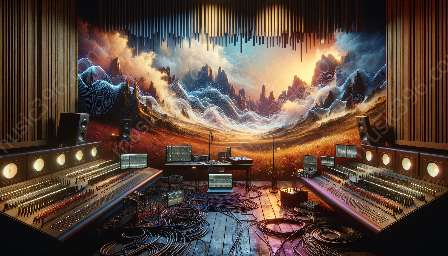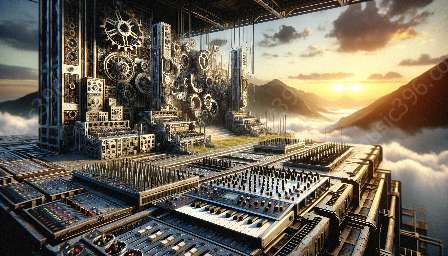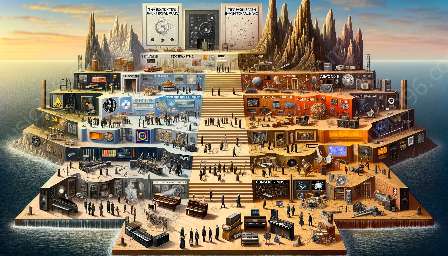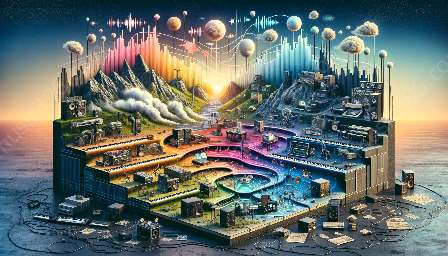Introduction to Industrial Music: Industrial music is a genre that emerged in the 1970s, characterized by its experimental and harsh sound. With a focus on gritty textures and mechanical rhythms, industrial music often reflects a dystopian and industrialized aesthetic.
Evolution of Industrial Music Distribution: Historically, industrial music distribution has faced challenges due to its niche audience and unconventional sound. Traditional distribution models limited the reach of industrial music, making it difficult for artists to connect with their fan base.
Impact of Technology on Industrial Music: The interplay of technology and industrial music has resulted in significant changes in how music is created, distributed, and consumed. With advancements such as digital audio workstations and electronic instruments, artists have more tools at their disposal to create experimental and industrial sounds.
Blockchain Technology in Music Distribution: Blockchain technology has emerged as a potential game-changer for industrial music distribution. By leveraging blockchain, artists can directly connect with their audience, bypassing traditional intermediaries and ensuring fair compensation for their work.
Empowering Artists with Blockchain: Blockchain-based platforms enable artists to tokenize their music, creating a direct link between the creators and their fans. This not only fosters a stronger sense of community but also provides artists with more control over their creative output.
Decentralized Nature of Blockchain: The decentralized nature of blockchain technology aligns with the ethos of industrial music, which often challenges conventional norms and structures. By decentralizing music distribution, blockchain empowers artists to embrace their independence and explore unconventional avenues for sharing their work.
Transparency and Fair Compensation: One of the key advantages of blockchain in music distribution is the transparency it offers. Smart contracts can ensure that artists receive fair compensation for their music, while fans can be confident that their support directly benefits the creators.
Challenges and Opportunities: While blockchain technology holds great potential for industrial music distribution, it also presents challenges. Navigating the complexities of blockchain and ensuring widespread adoption within the music industry require careful consideration and collaboration.
Experimental & Industrial Music in the Digital Age: As technology continues to shape the landscape of music, experimental & industrial music finds new opportunities for creative expression. The fusion of cutting-edge technology with the raw and unorthodox sounds of industrial music creates a dynamic and evolving ecosystem.
Conclusion: The interplay of blockchain technology and industrial music distribution represents a new frontier for artists and enthusiasts alike. By embracing the potential of blockchain and its decentralized ethos, industrial music stands to benefit from increased autonomy, transparency, and community engagement.































